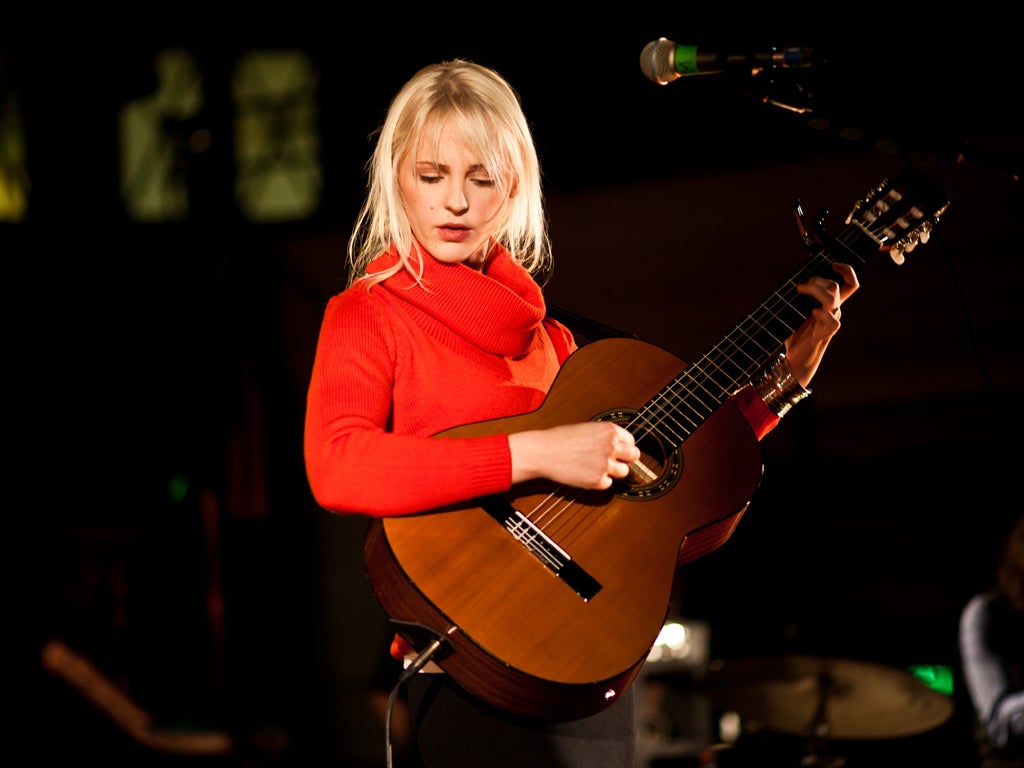Why rock and pop stars should end on a high note
Laura Marling has dropped the obligatory encore. Other acts should too, says Elisa Bray

Your support helps us to tell the story
From reproductive rights to climate change to Big Tech, The Independent is on the ground when the story is developing. Whether it's investigating the financials of Elon Musk's pro-Trump PAC or producing our latest documentary, 'The A Word', which shines a light on the American women fighting for reproductive rights, we know how important it is to parse out the facts from the messaging.
At such a critical moment in US history, we need reporters on the ground. Your donation allows us to keep sending journalists to speak to both sides of the story.
The Independent is trusted by Americans across the entire political spectrum. And unlike many other quality news outlets, we choose not to lock Americans out of our reporting and analysis with paywalls. We believe quality journalism should be available to everyone, paid for by those who can afford it.
Your support makes all the difference.At Laura Marling's London leg of her For Whom the Bell Tolls tour of UK cathedrals, the 21-year-old folk songstress announced that she and her band were staging a movement against the encore.
Instead of performing the encore that has come to be the obligatory ending of a pop, rock or folk gig, Marling told her fans: "If you want an encore, this is the final song, if not, it's the penultimate song".
I'm sure that I wasn't the only one in the crowd that night who agreed with Marling. Anyone who goes to gigs regularly will be familiar with the fake ending and encore charade. Once a spontaneous occurrence between audience and performer, these days it is a largely unwelcome aspect to pop and rock gigs as it is of no surprise. Even when Ryan Adams jested, as he neared the end of his Cadogan Hall set last year, that this was the point at which he would put on his jacket and expect us all to pretend that we think he's leaving and clap enthusiastically before he returns, minutes later, it felt like a joke that's wearing a bit thin.
The Who famously used not to perform encores because they'd have smashed up their guitars by the end of their sets. Sigur Rós were once a band that refused encores, no matter how much of an ovation they received. After 10 minutes of clapping, the Icelandic band would return to the stage – to bow. Yet even they now perform encores as part of their set. But nobody could begrudge Paul McCartney's double encore at the O2 Arena earlier this month. A momentous and rare gig such as this cries out for an encore.
So long as the house lights are still dimmed, that is the crowd's cue to keep on clapping. That gig-goers just respond to their unspoken prompts and clap if it is dark and then leave when it is bright only adds to the contrived nature of the encore. And when bands typically reserve their most popular tracks for the encore, this only means that fans must stay to the very end, perpetuating the cycle. It also suggests that bands no longer need to listen to a crowd's demands, returning robotically to the stage to deliver what's expected of them. But nobody wants to perform an encore to a handful of hardcore fans left behind in an otherwise cleared out venue. Such is the expectancy of an encore that fans tend to get one whether they want it or not. I have seen the audience at the rather self-consciously hip Lexington remain unconvinced on occasions, and the band came back on anyway. Folk-bluegrass singer-songwriter Beth Jeans Houghton was a recent case in point. Having never quite roused the crowd, she stomped back onstage saying: "Right, you don't want an encore, but we're going to do one anyway", and she and her band The Hooves of Destiny played a Madonna cover.
Then there are the occasions when it's just not practical to do an encore. It becomes a source of awkwardness when bands finish, receive plenty of applause, but then haven't had anywhere to go due to small venue layouts. At the cramped Borderline and Hoxton Bar & Grill, acts Sharon Van Etten and Department of Eagles respectively were seen to shuffle around at the end of their sets and say, "OK, let's pretend we went away and came back."
The pre-planned phoney theatrics are an empty ritual that do not befit the wild abandon of a rock show. If only rock gigs were more spontaneous, and the encore was a rarer occurrence. Until it's as meaningful as the standing ovation received in theatres, let's abandon the encore altogether.
Join our commenting forum
Join thought-provoking conversations, follow other Independent readers and see their replies
Comments